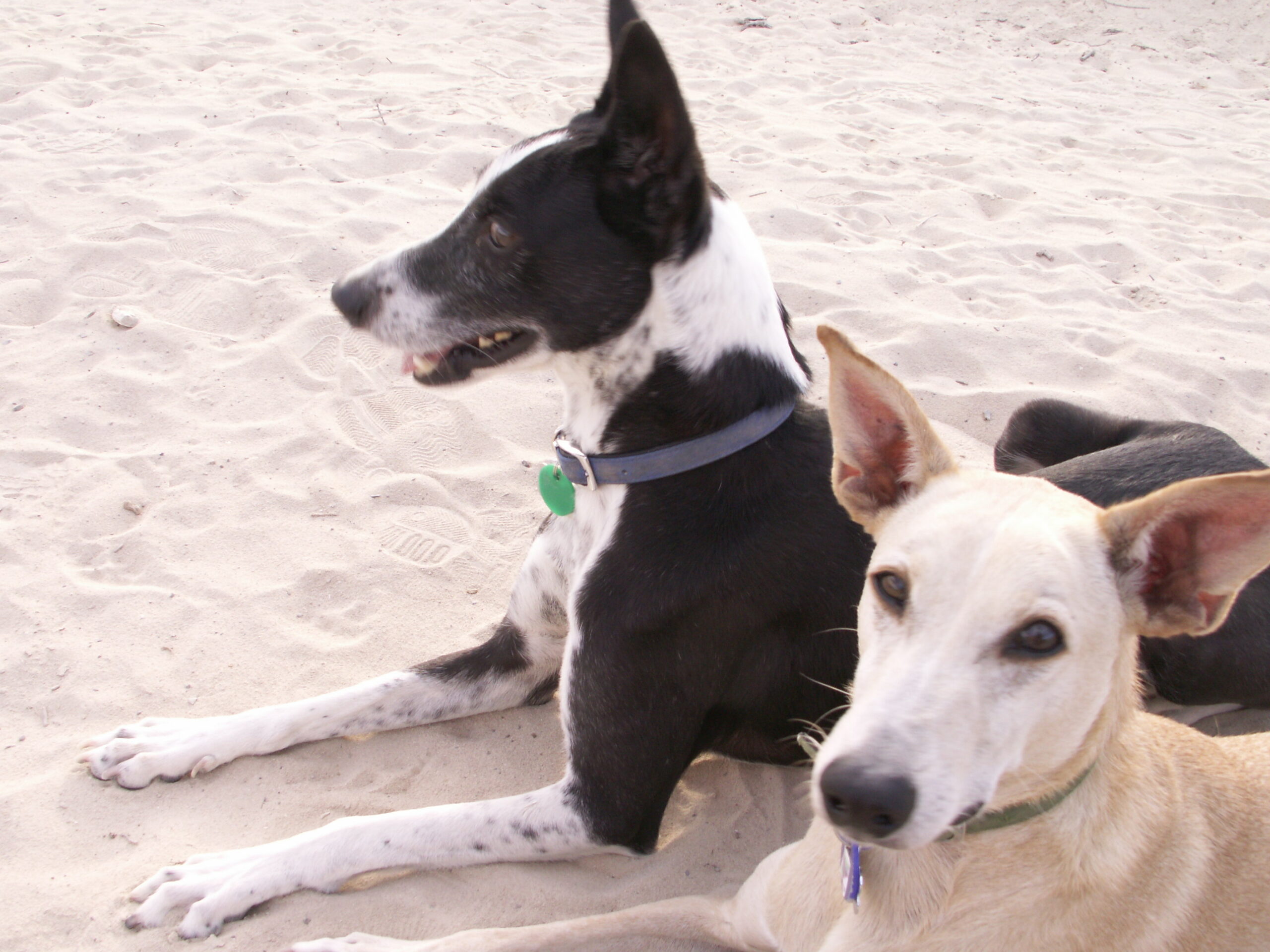Barks Blog
“Just” – Another Magic Word

Of course we all want well-behaved dogs. Come when called, walk happily on a loose lead, sit to be greeted rather than jump up on people, know when to stop barking. These are all things dog owners want their dogs to do: for the dogs’ benefit as well as the benefit of other people.
So, yes, I think we do want well- behaved dogs. But do we also stop to think about what our dogs want?
I couldn’t count the number of times I’ve had a client say, “I don’t want to teach my dog things like that; I just want him to be calm and polite.” The “things like that” are usually tricks of one sort or another. Other things I hear frequently are, “I just want her to stop digging up my best plants”, “I just want him to stop jumping up on people” or I just wish she wouldn’t pull so much on the leash.”
Comments like these come from some of my very best clients – people who truly want their dogs to be happy. The first of those comments above was made by a client who, later, in a conversation we were having during an accidental meeting in a supermarket, made this telling statement: “We’ve just come back from visiting friends who had to euthanize their Golden at the beginning of the week. I know it’s a dreadful thing to say but I sometimes think that the loss of a dog is far harder to take than the loss of a relative.”
I have another client who “just” wanted to stop his 9-month-old pup from eating any more of their very expensive leather lounge. (One chair had had to go – no chance of repairs.) This man actually takes his dogs on a weekly trip to an off-leash beach that is a one a half hour trip (each way) from his home. Yet he considered tricks to be frivolous and not at all “doggy.”
Now I’m sorry, boys, but “I just want” statements almost invariably come from men in my experience. And I have a sneaking suspicion about the historical context of this line of thinking.
The demographic that my business operates in is that of a fairly well to do community with an above average population of retirees. These people remember the days when domestic dogs could go where they wanted whenever they wanted. Dogs went with their boys down to the creek to fish or check the traps on weekends or after school. The boys enjoyed lazy summer days with their dogs and the dogs seemed totally happy.
But there was an ingredient in dogs’ lives that their boys forgot about. While the boys were at school or chasing their latest “love”, their dogs were leading a very full and satisfactory life of their own, thank you very much.
This is no longer the case!
In Australia, Certified Companion and Guide Dogs are exempted but dogs in general can’t travel on public transport, enter school grounds, be taken into airport terminals, be off leash in any other than a limited number of designated leash-free areas or be taken into areas where food is served. Don’t get me wrong. There are some very positive outcomes from some of these laws. Unwanted, unplanned litters are nowhere near as frequent now. Streets are cleaner and our native animals are safer. But it puts a far greater onus on us, the dogs’ owners, to provide much of the entertainment and learning that dogs previously took care of for themselves.
Laws are being relaxed very, very slowly now – dogs can be taken to al fresco dining areas, providing the proprietor gives permission. There are an increasing number of hotels and caravan parks that will accept dogs. (Great work is being done by the members working on the Pet Dog Ambassador program.) But on the whole, dogs in Australia depend entirely on their owners for every single one of their needs – including their entertainment and education.
The life of dogs in other developed countries is not so stringently controlled, I know. Still, their lives are restricted by law and lifestyles, particularly with apartment living. So, entertainment has to be on us, folks!
I know that I singled out men as being most vocal in “just” wanting. However, I’d be surprised if women didn’t have a similar mindset; they perhaps don’t speak their minds so often. But when part of the homework is to teach their dog a trick, they are just as guilty of not doing the homework as are the men.
Our dogs give us so much. They give pleasure, companionship, entertainment and even physical well-being. They deserve to have us give something back; something more than the basics. They love fun, they love learning; their capacity to read our body language is something we often ignore.
So, (with apologies to JFK) ask not just what your dog can do for you but what you can do for your dog!
